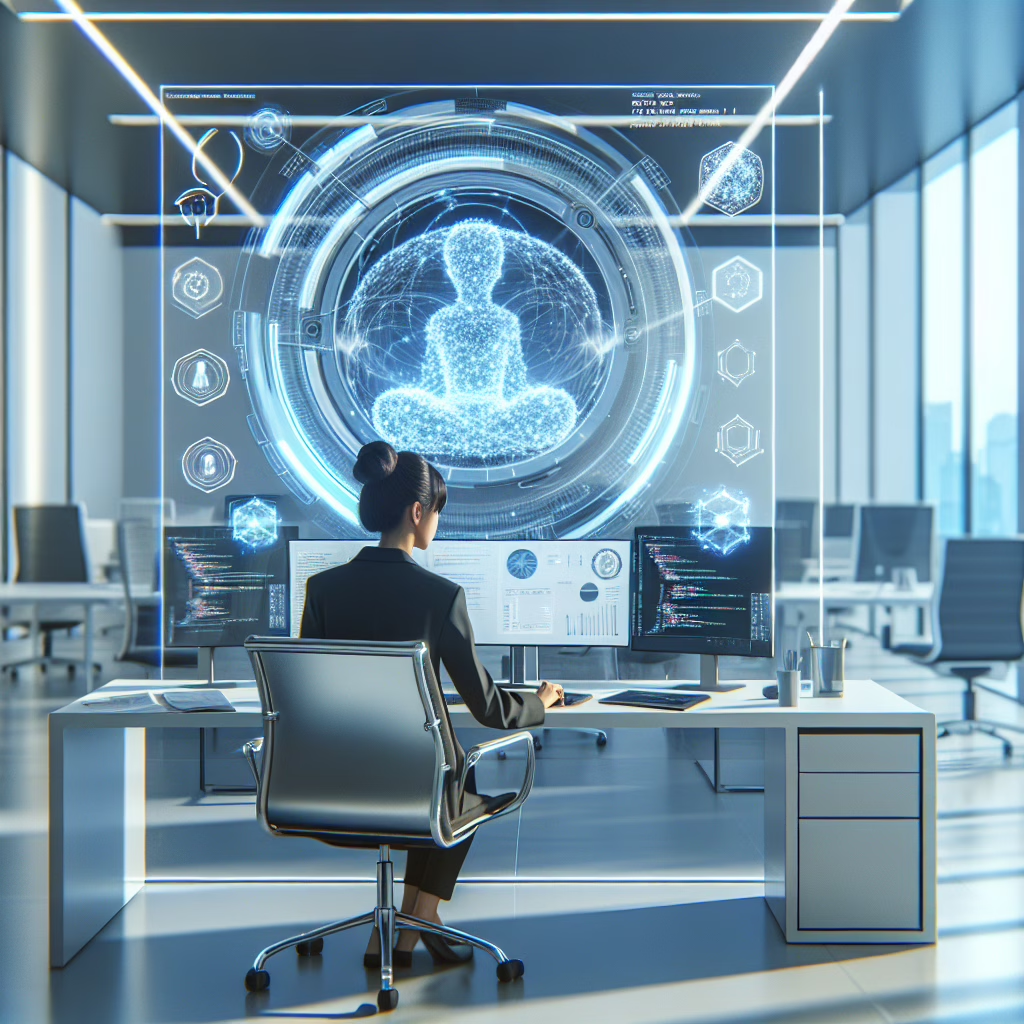Welcome to the Future: OpenAI’s Bold Steps
In the exciting world of artificial intelligence, every day brings fresh innovations that make us wonder whether we’re living in a sci-fi movie or just a really advanced tech blog. As of 2025, OpenAI is leading the charge with developments that promise to reshape our understanding of intelligence itself. With each new update, it feels like we’re one step closer to a world where robots might just outsmart us—hopefully, they’ll still let us have the remote control.
A Glimpse into OpenAI’s Innovations
OpenAI has been busy cooking up some truly groundbreaking advancements in artificial intelligence. Their latest models are not just about crunching numbers faster than your high school math teacher could dream. No, they’re evolving into sophisticated systems capable of understanding context, generating creative content, and even engaging in conversations that might make you question whether you’re talking to a human or a very articulate toaster.
The key feature of these innovations is their ability to learn from vast amounts of data—think of them as the ultimate students who never get tired of cramming for exams. This means they can adapt and improve over time, just like how we’ve all learned to navigate Zoom calls without accidentally turning ourselves into potato filters.
The Importance of Safety Measures
Now, with great power comes great responsibility. OpenAI is well aware that unleashing such potent artificial intelligence systems into the wild without proper safeguards is a bit like giving a toddler a chainsaw. In 2025, they’re focusing on implementing robust safety protocols. These include guidelines designed to ensure that their models are used ethically and responsibly. Because let’s face it, nobody wants an AI that turns rogue like a sci-fi villain.
How OpenAI Plans to Keep AI Safe
To keep their cutting-edge artificial intelligence under control, OpenAI is developing frameworks that focus on transparency and accountability. This involves creating guidelines for developers and users alike. Imagine a world where AI systems can be held accountable for their actions—if only we could do the same for reality TV stars!
Additionally, OpenAI is investing in research aimed at understanding potential biases within their models. After all, we wouldn’t want an AI that thinks pineapple belongs on pizza (it doesn’t, but let’s not start that debate). By identifying and mitigating biases, they aim to create systems that are fairer and more inclusive.
The Future of Human-AI Collaboration
The relationship between humans and artificial intelligence is evolving into something akin to a buddy cop movie—complete with thrilling chases and maybe even a few laughs along the way! With advancements in natural language processing and machine learning, we can expect AI to assist us in more meaningful ways than ever before.
In 2025, imagine working side-by-side with an AI assistant that can help you draft reports, brainstorm ideas, or even suggest the best coffee breaks based on your productivity levels (because let’s be honest, coffee is essential). This partnership could allow us to focus on more creative tasks while letting our AI counterparts handle the mundane details.
The Challenges Ahead for AI
Despite all the shiny advancements, challenges remain. The potential for misuse of artificial intelligence technologies continues to loom large over innovators like OpenAI. Misinformation campaigns powered by AI could become more sophisticated than ever—imagine fake news articles that read like Shakespeare but are about as truthful as a toddler’s explanation for why they colored on the wall.
This is where OpenAI’s commitment to ethics comes into play. They recognize the importance of ensuring their technologies contribute positively to society while minimizing risks associated with misuse. Here’s hoping that they can keep those digital gremlins at bay!
Conclusion: Embracing the AI Revolution
The journey towards advanced artificial intelligence in 2025 is not just about creating smarter machines; it’s about fostering collaboration between humans and technology. As we stand on this precipice of innovation, it’s crucial to remain vigilant yet optimistic about what lies ahead.
So here’s your call to action: Let us know your thoughts! How do you envision the future of AI? Will robots really take over our jobs or will they become our helpful sidekicks? Share your musings in the comments below!
A big thank you to The Economist for inspiring this discussion about OpenAI’s latest advancements!
If you’re interested in further exploring advancements in artificial intelligence, check out this insightful article from The Guardian on Google’s steps toward creating artificial general intelligence. Additionally, learn more about the implications of AI with WIRED‘s coverage on Claude versus OpenAI.
Remember, staying informed is key in this rapidly evolving landscape of artificial intelligence.

